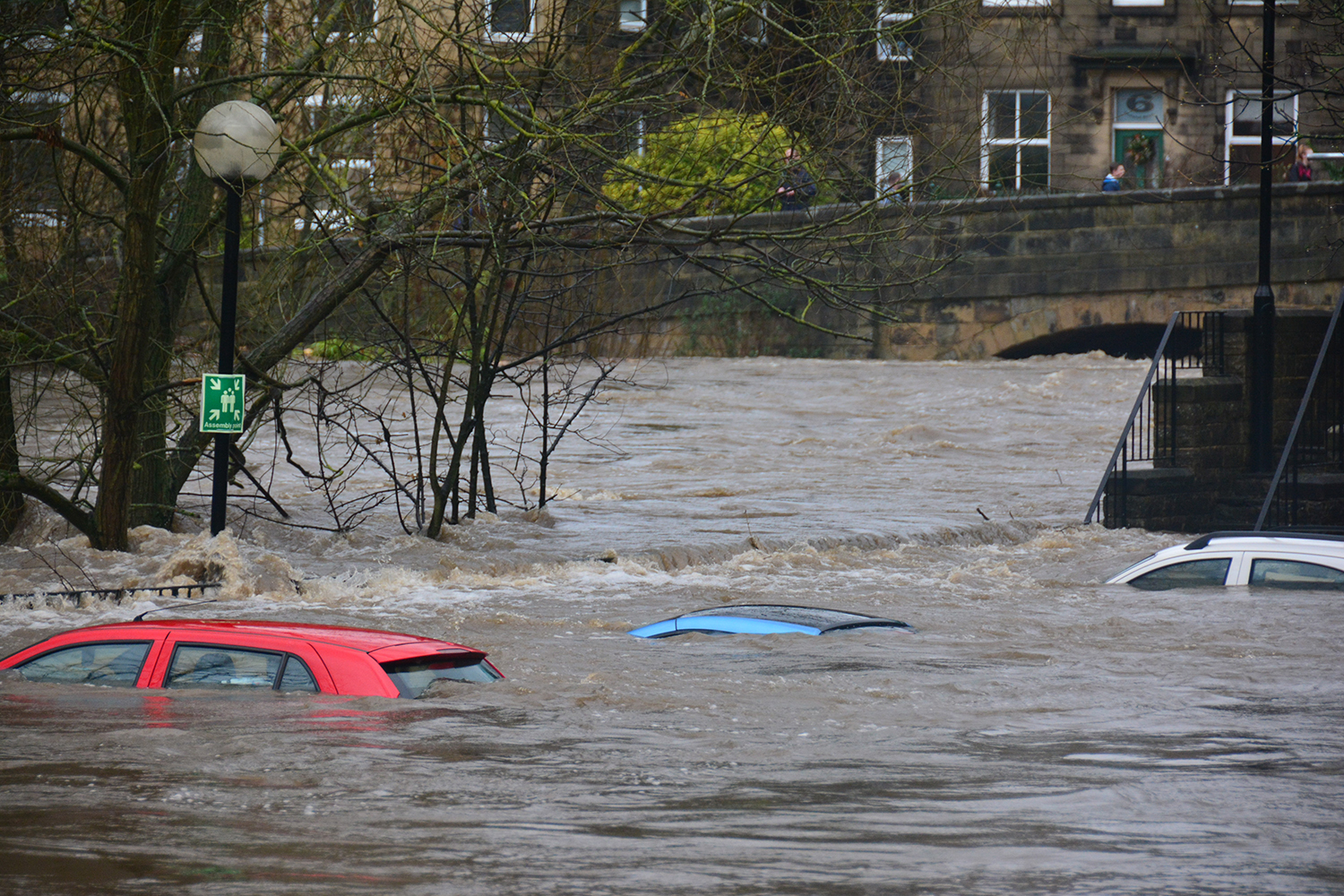The Responsible Investor
Climate Action – Investing Sustainably

Many scientists believe that the earth’s atmosphere is changing rapidly. According to the National Oceanic and Atmospheric Administration (NOAA), the earth’s temperature has risen by an average of 0.14°F every decade since 1880. The rate of warming over the past four decades is more than twice that at 0.32°F.1
This temperature increase profoundly affects weather patterns and strains on our natural resource. Rising global temperatures significantly impact the world’s oceans. Scientists estimate that the global sea level could rise another one to eight feet by 2100 due to melting arctic ice sheets.2 In the United States, the increased sea level will put millions of people and billions of dollars of real estate at risk from rising tides causing erosion, flooding, and environmental changes to wildlife habitats and farmland.
According to the National Oceanic and Atmospheric Administration (NOAA), carbon dioxide in the atmosphere has also risen by 25% since 1958.3 The increase in carbon dioxide causes complex issues for the environment including rising temperatures and more frequent catastrophic weather events such as storms, flooding, and droughts. The drastic increase in warming over the last 40 years has a lot to do with the rise of carbon emissions.
When fossil fuels are burned, they release carbon dioxide into the air. Fossil fuels are fuels naturally formed from living organisms from the geological past. Examples include coal, crude oil, and natural gas. They are comprised of hydrocarbon materials from the remains of plants and animals and found in the earth’s crust. Many scientists believe that emissions from fossil fuels cause much of the earth’s carbon emissions which leads to global warming.4
We have seen tremendous progress in the standard of living of the average person across the globe during this time (especially in emerging market economies). However, economic growth has unfortunately come at the cost of increased emissions and higher temperatures. In 2012, the United Nations developed 17 Sustainable Development Goals (SDGs) to provide shared objectives that address environmental, political, and economic world challenges. These goals were adopted by all United Nations members in 2015, serving as a call to action. SDG 13 is a direct call for action to address climate change. SDG 13 centers on taking action to fight climate change and its impact.
Aligning your capital with SDG 13
Most of us are aware of the steps we can take in our everyday lives to decrease our carbon footprint, such as recycling, riding our bikes instead of taking cars, and carpooling. There are also more ways to align your investment portfolio with more eco-friendly companies.
Mutual funds or exchange-traded funds are the easiest ways individual investors can hold a diversified portfolio of stocks and bonds. Buying a fund gives you instant exposure to many more holdings than if you were to buy a security on its own. At the beginning of 2022, 15 mutual funds in the U.S. didn’t have any exposure to fossil fuels.5
One caveat in trying to obtain a fossil-fuel-free portfolio is that you may need to exclude entire sectors of the U.S. stock market. This type of portfolio will have a higher tracking error than if you were to invest in strictly low-cost index funds. A hybrid approach is to own funds that still contain all stock market sectors but may “tilt” money towards owning companies with lower carbon emissions and exclude only the companies with the worst carbon emissions by sector. These funds may be easier for some investors to hold since the performance will still be aligned with indices.
Investing in funds with a sustainable mandate has exploded in popularity over the last decade. According to Morningstar, the amount of money invested in sustainable funds rose by 53% in 2021.6 It’s believed that this trend is going to continue for the foreseeable future as younger investors continue to focus on climate action, not only in their personal lives but in their portfolio as well.
References
1. Lindsey, R. and Dalhman, L. (March 15, 2021). Climate change: global temperature. National Oceanic and Atmospheric Administration. https://www.climate.gov/news-features/understanding-climate/climate-change-global-temperature\
2. National Oceanic and Atmospheric Administration. (August 31, 2021). Climate change impacts. https://www.noaa.gov/education/resource-collections/climate/climate-change-impacts
3. Ibid.
4. Fossil fuels and climate change: the facts. (February 18, 2022). Client Earth. https://www.clientearth.org/latest/latest-updates/stories/fossil-fuels-and-climate-change-the-facts/
5. Quinson, T. (February 9, 2022). ‘Sustainable’ mutual funds with no fossil-fuel holdings are rare. Bloomberg. https://www.bloomberg.com/news/articles/2022-02-09/finding-mutual-funds-without-fossil-fuel-holdings-isn-t-easy-green-insight
6. Kishan, S. (February 3, 2022). ESG by the numbers: sustainable investing set records in 2021. Bloomberg. https://www.bloomberg.com/news/articles/2022-02-03/esg-by-the-numbers-sustainable-investing-set-records-in-2021

Learn more about Derek Van Calligan
Hello! I’m Derek, a wealth advisor and director of investment research at Allodium Investment Consultants, located in Minneapolis, MN. I am passionate about helping individuals and families build holistic financial plans to help them reach their goals. When I’m not helping our clients make investment decisions, I enjoy spending time in the mountains in Colorado—skiing, fishing and hunting with my wife, Kelly, and my dog, Hank. I am also an active church member and volunteer at Big Brothers Big Sisters and Junior Achievement.
The information provided is for educational purposes only and is not intended to be, and should not be construed as, investment, legal or tax advice. Allodium makes no warranties with regard to the information or results obtained by its use and disclaim any liability arising out of your use of or reliance on the information. It should not be construed as an offer, solicitation or recommendation to make an investment. The information is subject to change and, although based upon information that Allodium considers reliable, is not guaranteed as to accuracy or completeness. Past performance is not a guarantee or a predictor of future results of either the indices or any particular investment.